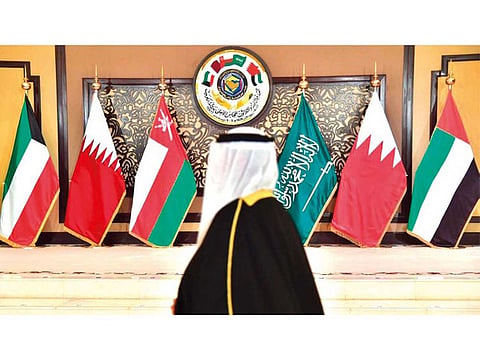Saudi Arabia seeks to avert war in the region: Saudi minister Adel Al Jubeir
King Salman calls for Arab meet on current escalation in region

Jeddah: Saudi Arabia’s King Salman Bin Abdulaziz Al Saud called for an emergency meeting of Gulf Cooperation Council (GCC) member states and leaders of Arab League countries to discuss the security of the region and measures to enhance it, according to a Saudi Press Agency (SPA) report late on Saturday.
The Saudi Press Agency (SPA) said King Salman had invited Gulf leaders and Arab states to two emergency summits in Makkah on May 30 to discuss recent "aggressions and their consequences" in the region.
The extraordinary meeting has been called following attack on the commercial maritime ships in the territorial waters of the UAE and the Iran-backed Houthi militias’ attacks on two oil pumping stations in Saudi Arabia.
The meeting is scheduled to take place on May 30, 2019, in Makkah, SPA reported, quoting the Saudi Ministry of Foreign Affairs.
Tensions have soared in the Gulf, with the United States deploying an aircraft carrier and bombers there over alleged threats from Iran.
Saudi minister of state Adel Al Jubeir said in a press confrence that Saudi Arabia is doing its best to avoid war in the region but stands ready to respond with "all strength and determination" to defend itself from any threat.
Riyadh "does not want a war, is not looking for it and will do everything to prevent it".
Minister of State for Foreign Affairs Adel Al Jubeir accused Iran of committing "countless crimes" including seeking to destabilize the region. He urged the international community to take responsibility to stop the Islamic republic from doing so.
"Our security and religion are a red line," Al Jubeir said. His statement comes following last week's attacks on Saudi oil tankers in the Arabian Gulf and installations within the Kingdom.
Al Jubeir also urged Qatar, an estranged member of the GCC to stop supporting extremists and terrorists and return to the fold. Saudi Arabia, Bahrain, the UAE and Egypt severed trade and diplomatic ties with Qatar in 2017, charging Doha of siding with terror groups that have been destabilizing the region.
UAE "welcomed" Saudi invitation
The Ministry of Foreign Affairs and International Cooperation, in a statement said the call is reflective of the Saudi leadership's continued determination to establish peace and security in the region.
The statement underlined, in this respect, the leading role played by King Salman in "unifying Arab ranks and coordinating Arab stances."
"The current critical circumstances entail a unified Arab and Gulf stance toward the besetting challenges and risks," said the statement, characterising the call of King Salman as a "significant opportunity for the countries of the region to achieve their aspirations for establishing peace and stability and ensuring our joint security, sovereignty and achievements."
Four ships, including two Saudi oil tankers, were damaged in mysterious sabotage attacks last Sunday off the UAE's Fujairah, located at the crucial entrance to the Gulf.
That incident was followed by drone strikes Tuesday by Yemen's Houthi rebels on a major Saudi oil pipeline, which provided an alternative export route if the Strait of Hormuz closed.
Iran has repeatedly threatened to prevent shipping in Hormuz in case of a military confrontation with the United States, which has imposed sanctions on Tehran in recent months.
Jubeir said the UAE was leading the probe into the damaged oil tankers, but added that "we have some indications and we will make the announcements once the investigations are completed".
Despite international scepticism, the US government has been pointing to increasing threats from Iran, a long-time enemy and also a rival of US allies Israel and Saudi Arabia.
SPA on Sunday said the Saudi crown prince spoke on the phone with US Secretary of State Mike Pompeo about efforts to enhance security in the region.
Iran’s foreign minister was quoted by the state-run IRNA news agency on Saturday as saying his country is “not seeking war” even as the chief of Iran’s Revolutionary Guard said Tehran was in a “full-fledged intelligence war with the US.“
Sign up for the Daily Briefing
Get the latest news and updates straight to your inbox





